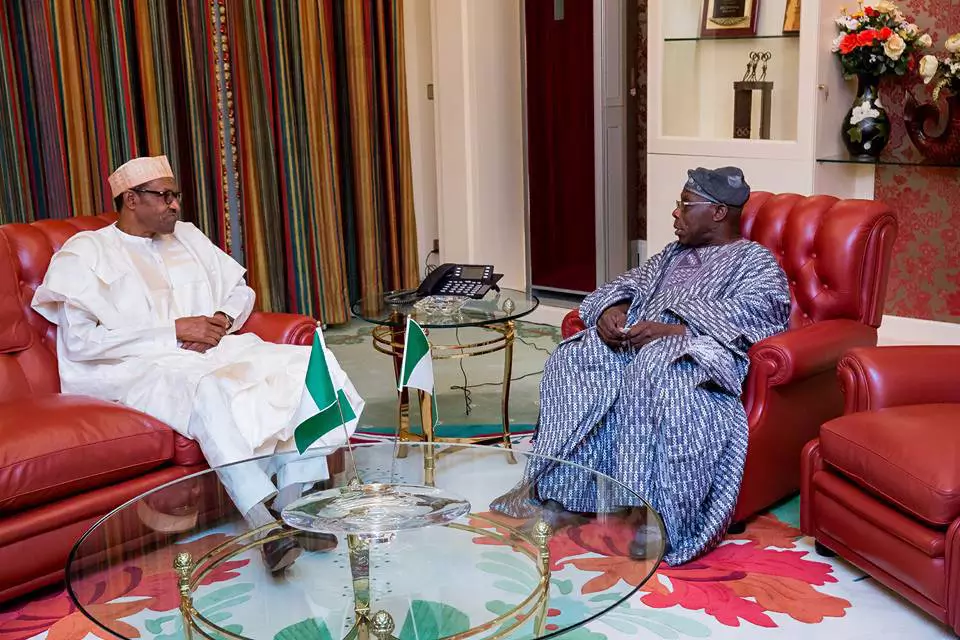Former President Olusegun Obasanjo had time to reflect on the circumstances that led to his becoming head of state in 1976. Former President Olusegun Obasanjo had time to reflect on the circumstances that led to his becoming head of state in 1976.
Obasanjo became head of state after Murtala Mohammed was killed in a bloody coup. He said he initially refused to accept the position because of the tension that followed the incident. Mohammed, a Muslim, was killed in the coup on a Friday when people of his faith observe the Juma’at service by the coup plotters who were predominantly Christians.
Thus the fear was obvious and Obasanjo, who was then the Chief of Staff of Supreme Headquarters, rejected the offer to take the late Mohammed’s place.
Obasanjo later took the position and handed to a civilian government in 1979 after helping the country with a constitution. He also returned as president of the country in 1999 as a democrat under the Peoples Democratic Party (PDP).
He served two terms of four years each, but left the party just before the 2015 tearing his membership card publicly and declaring support for Muhammadu Buhari, then candidate of the All Progressives Congress (APC).
Speaking when he received the cast and crew of the yet to be released film ‘1976’ at the Olusegun Obasanjo Presidential Library, Abeokuta, Ogun state on Monday, August 15, 2016, the former president explained the misconception that trailed the coup. Daily Trust reports him as saylng: “The killing of a Muslim on a Friday by a gang thought to be Christians, particularly, when we remembered the first coup, which upturned the political situation, gave a bad signal.”
While congratulating the cast and crew, he said the film was a reminder of the incident, adding: “It will make us to remember ourselves not to go back to the dark days, which put us in ‘go-no-go’ situation. We can have more of this, as there are more national issues that can be portrayed. We are capable of the best and that is what this film has shown.”
The executive producer of the film, Prince Tonye Princewill, said the cast and crew was going round the country to seek support and endorsement and remind the people of their history. The film would be premiered in November.
/929979-former-president-obasanjo-comes-with-another-major-revelation.html
Obasanjo became head of state after Murtala Mohammed was killed in a bloody coup. He said he initially refused to accept the position because of the tension that followed the incident. Mohammed, a Muslim, was killed in the coup on a Friday when people of his faith observe the Juma’at service by the coup plotters who were predominantly Christians. READ ALSO: Philip Effiong, the Biafra hero who has been forgotten Thus the fear was obvious and Obasanjo, who was then the Chief of Staff of Supreme Headquarters, rejected the offer to take the late Mohammed’s place. Obasanjo later took the position and handed to a civilian government in 1979 after helping the country with a constitution. He also returned as president of the country in 1999 as a democrat under the Peoples Democratic Party (PDP). He served two terms of four years each, but left the party just before the 2015 tearing his membership card publicly and declaring support for Muhammadu Buhari, then candidate of the All Progressives Congress (APC). READ ALSO: Obasanjo, Banda attends MMF women summit in Lagos Speaking when he received the cast and crew of the yet to be released film ‘1976’ at the Olusegun Obasanjo Presidential Library, Abeokuta, Ogun state on Monday, August 15, 2016, the former president explained the misconception that trailed the coup. Daily Trust reports him as sayng: “The killing of a Muslim on a Friday by a gang thought to be Christians, particularly, when we remembered the first coup, which upturned the political situation, gave a bad signal.” While congratulating the cast and crew, he said the film was a reminder of the incident, adding: “It will make us to remember ourselves not to go back to the dark days, which put us in ‘go-no-go’ situation. “We can have more of this, as there are more national issues that can be portrayed. We are capable of the best and that is what this film has shown.” The executive producer of the film, Prince Tonye Princewill, said the cast and crew was going round the country to seek support and endorsement and remind the people of their history. The film would be premiered in November.














